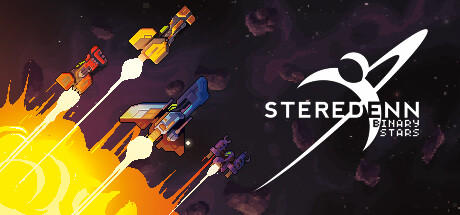Based off what? A negative review of 1 game?
The flaws and issues Armikrog launched with are indeed bad, though I'd say the biggest issue is the fact that it doesn't have a good UI
How many PnC games have you played so far this year?
Based on all the KS games that i played or read reviews about. I've also agreed with Walker's review of Broken Age. Fact is, most of the crowdfunded games released got negative reviews and left plenty of players unsatisfied and dejected. People didn't back legends of the genre to work Publisher-less only to produce games that 'might be good in the 80's'. That's not the bar.
Broken Sword 5 did seem to get the most positive reviews out of the bunch but i haven't taken a close look at it. It appears to me that it is less egregious in exposing the rut that this genre is stuck in.
Broken Age was fine, if it were released during the 80s or 90s era y'all would be praising it about as much as the Monkey Island and Broken Sword games.
Aside from pixel hunting and there being 1 way to solve puzzles, all of that IS in recent PnC games that are similar to PnC games of the past decades.
Aside from 2 of the 3 \ 2 of the 4 points mentioned? That's still a lot. Broken Age didn't have skippable conversations and it didn't have item highlighting. If you are a P&C developer and you don't have those 2 things in your game then you better stop right now because you aren't going to be making a worthwhile product.
Which is why i said the issue is severe not because devs fail to capture what makes P&C games good - they also fail to avoid what makes P&C games a nuisance and unpleasant experience.
Why fit game design to work on mobile when the game design of the old PnC games would work fine on a mobile anyways? You can play the OG Monkey Island 1 and 2 games on an iPad or iPhone for example.
Dunno, ask the devs. But with the rise of mobile games and popularity of Telltale games, 'classic' P&C titles started exhibiting even less complexities and agency. You might say 'Correlation doesn't mean..' but in this case i don't see another explanation. I mean, it's probably cheaper and easier to make games like that but they don't make them better.
As much as I'd like to see the PnC adventure genre take the next step, the issue comes with the cost of development and time invested in making Adventure games be open ended in its progression.
I can't imagine a genre that is easier for devs to control. Devs control what you can pick-up, the devs control all the items you can have while facing this or that puzzle. If the player needs to pick something from a crack in the floor and the dev already went into the trouble of allowing me to pick-up a fork, a knife, a spike then what the heck is the problem with checking the three items as a solution? Unless you clearly convey why one item does the job and the other doesn't (comment by the character 'it's too deep in, i need something longer').
I would also add direct control to everything that is logical to do so. For instance, if you need to use a gun on lock to shoot it open. Why have an animation play-out instead of letting the player aim the gun at the lock and pull the trigger? Auto-save before every such instance so the player won't have to load a previous save if he tries to shoot other stuff for the heck of it or to see if there is special dialogue if you do something else.
In general i would also like to see more fail states and game overs. Losing progress is no longer a concern.
And we have different ideas of what makes a game in this genre good. I want annoying pixel hunting and puzzles that make absolutely no sense. Those are some of my personal favorite qualities in this genre and would hate to see them go away completely.
If anything, I think the genre is becoming too dumbed down. It's rare for a game in this genre to provide a good challenge and when it happens it's usually just a puzzle or two.
It isn't hard to make something challenging or perplexing. The point is to make something hard but still achievable by adhering to logic, common sense or what the game taught you. At the end, you want the player to piece it together and get his a-ha moment, not somehow stumble to the solution and then react 'wtf is this solution and how was i supposed to reach it'.
The good thing is that you have no shortage of games that are designed that way, so you're set.
An item-highlighting option is just that. You don't have to use it. You can wreck your brain if you want to but let others circumvent pixel hunting if they want to.





